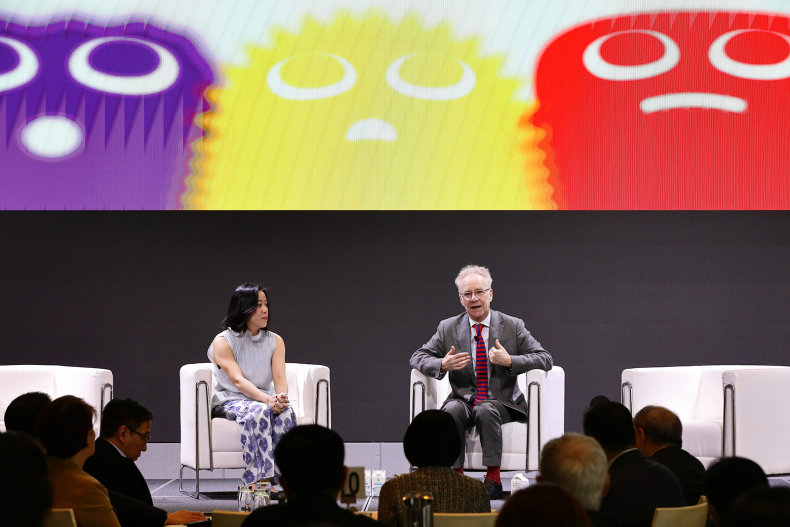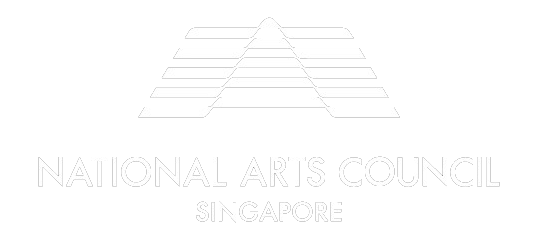

Art Thought Leadership Forum 2024: Creative Regions, Creative Economies
Overview
The National Arts Council hosted its 2nd edition of the Art Thought Leadership Forum, co-organised by Family Office for Art (FOFA).
Themed Creative Cities, Creative Regions, the forum is a closed-door platform for a select group of Singapore and international thought leaders from the public and private sectors. Comprised of a keynote speech and a panel discussion, it aims to discuss opportunities and challenges in developing a sustainable strategy for amplifying a city's rich cultural and artistic content. It comprised of a keynote speech as well as a panel discussion.
Today, we recognise that creativity is a major factor in sustainable urban development and a country’s prospects for economic growth. Yet, the notion of culture is not easy to understand and has changed over time and in different places. How can we generate more understanding and knowledge about the diverse components of the cultural and creative ecosystem? This forum aims to introduce concepts and case studies to help us comprehend how to bring together areas from the field of management, governance and organisation as well as policy making and the understanding of culture.
Event Details
Date: Thursday, 18 January 2024
Time: 9am – 12pm
Venue: Claymore Ballroom, Pan Pacific Orchard
—
Event Programme
8.30am: Registration & Breakfast Buffet
8.55am: Welcome Address
9.00am: Opening Remarks by Guest-of-Honour, Minister Edwin Tong
Ministry of Community, Culture and Youth and Second Minister for Law
9.10am: Keynote – Creative Regions, Creative Economies
Prof. Pratt's keynote delves into how cities are transitioning from investment-driven to creativity-centric models. He underscores the growing role of the creative economy in innovation and local differentiation. Emphasising the management of creative ecosystems and learning from COVID-19's impact, Pratt advocates for a regional approach in developing culturally rich, interconnected cities, highlighting Singapore's unique potential in this global shift.
This was followed by a moderated Q&A session.
Keynote Speaker:
Prof. Andy Pratt
UNESCO Chair of Global Creative Economy, Director of the Centre of Culture and the Creative Industries, and Professor of Cultural Economy, City, University of London
10.10am: Coffee Break
10.30am: Panel – Creative Cities: Thinking Creatively and Competing Globally
This panel discussion features prominent speakers from Bandung, Seoul, and Abu Dhabi, exploring strategies for cities to foster creativity and compete on the global stage. This session delves into diverse urban experiences, highlighting innovative approaches to cultural development and economic competitiveness. The panellists will share insights on leveraging local strengths to build dynamic, globally connected urban ecosystems, facilitating a rich exchange of ideas across these distinct cultural landscapes.
Speakers:
Reem Fadda
Director, Cultural Foundation and Abu Dhabi Cultural Sites, Department of Culture and Tourism, Abu Dhabi
Tita Larasati
Lecturer/Research at Industrial Product Design Program, Faculty of Art and Design, Institut Teknologi Bandung (ITB), who is also the focal point for Bandung City of Design, UNESCO Creative Cities Network (UCCN)
Daehyung Lee
Director of Hzone
Moderated by:
Ning Chong
Founder and Director of Family Office For Art (FOFA)
11.55am: Closing Remarks by Ning Chong
Founder and Director of Family Office for Art (FOFA)
12pm: End of Programme
Opening Remarks
by Mr. Low Eng Teong, Minister for Culture, Community and Youth, and Second Minister for Law
Mr. Low set the stage with his insightful opening remarks, extending a warm welcome to the participants and underscoring Singapore's remarkable evolution as a burgeoning hub for the arts. With a keen emphasis on Singapore's robust infrastructure and global connectivity, Minister Tong shed light on the international acclaim garnered by Singaporean artists and the catalytic role played by initiatives like ART SG and S.E.A. Focus in amplifying Singapore's presence on the regional arts landscape. Emphasising the forum's mission to foster synergistic partnerships between the public and private sectors, Minister Tong reiterated the core tenets of the Our SG Arts Plan (2023 – 2027), anchoring the arts within the societal fabric to engender connectivity, distinctiveness, and economic dynamism.
Summary of Keynote: Creative Regions, Creative Economies
Keynote speaker Prof. Andy Pratt, UNESCO Chair of Global Creative Economy, discussed the critical role of creativity in urban development and economic growth. Emphasising the management of creative ecosystems and learning from COVID-19’s impact, Pratt advocates for a regional approach in developing culturally rich, interconnected cities. He'll focus on how cities like Singapore can lead in the new phase of globalisation, leveraging the creative economy for sustainable urban growth and differentiation.
Summary of Panel Discussion: Creative Cities: Thinking Creatively and Competing Globally
This panel discussion featured prominent speakers from Bandung, Seoul, and Abu Dhabi, exploring strategies for cities to foster creativity and compete on the global stage. This session delves into diverse urban experiences, highlighting innovative approaches to cultural development and economic competitiveness. The panellists will share insights on leveraging local strengths to build dynamic, globally connected urban ecosystems, facilitating a rich exchange of ideas across these distinct cultural landscapes.
Reem Fadda discussed her role in developing Abu Dhabi's Saadiyat Cultural District, including the highly anticipated Guggenheim Abu Dhabi project and the new Public Art Abu Dhabi initiative that will transform the urban landscape.
Tita Larasati shared insights in catalysing and harnessing community support in developing creative and economic initiatives to sharpen Bandung’s economic advantage. She will explore the Fashion Village Lab as a case study, illustrating how this project significantly boosts Bandung’s competitive edge at a national level.
Daehyung Lee provided perspective on how the integration of digital technology and art will forge new channels for a city to engage, inspire and connect with people. He will specifically discuss the impactful Connect, BTS project, exemplifying how the powerful fandom economy can drive successful cultural initiatives in cities.
Overall, the forum witnessed a vibrant exchange between the audience and panelists, illuminating the intricate interplay between cultural initiatives, community engagement, and environmental sustainability. Queries on private sector funding, community-driven projects, and archival solutions underscored the forum's ethos of inclusivity and knowledge dissemination, offering a panoramic vista into the myriad challenges and opportunities within the creative economy landscape.
Concluding Remarks
Ms. Ning Chong's poignant epilogue encapsulated the forum's essence, celebrating the transformative power of art as a catalyst for societal change and global unity. Her resounding call to action underscored the imperative of collective endeavor, urging stakeholders to harness the transcendent power of creativity to navigate the complexities of contemporary challenges and foster a more equitable and vibrant world.
In essence, the National Arts Council Art Thought Leadership Forum 2024 served as a beacon of hope amidst an increasingly turbulent world, illuminating a path towards a future where creativity and collaboration knows no bounds. Through concerted efforts and unwavering resolve, societies can harness the transformative power of art to sculpt a more inclusive, sustainable, and harmonious global landscape.


